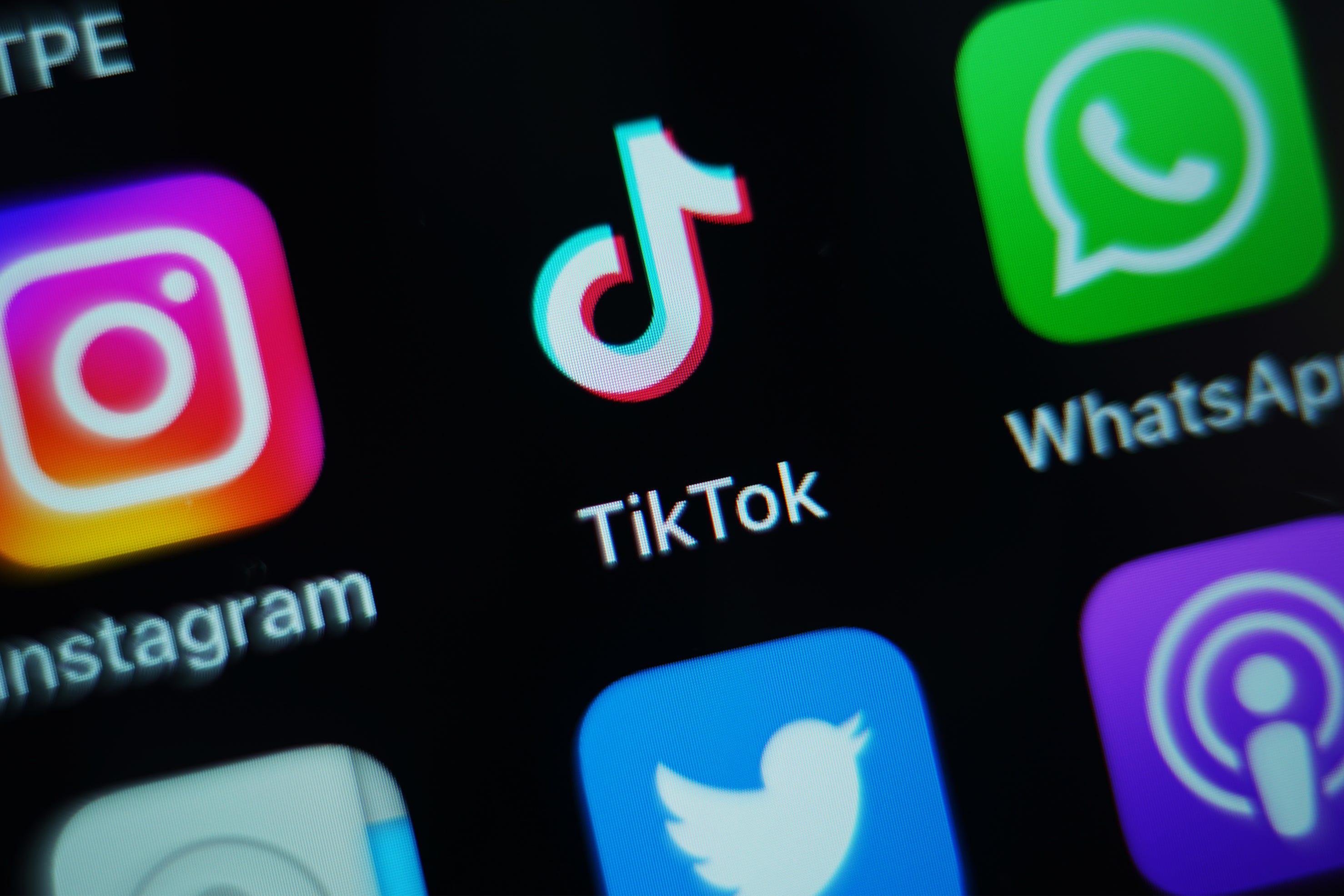Use TikTok to help youngsters avoid obesity, study suggests
Academics said there is ‘huge potential’ in social media to help spread information about nutrition and healthy eating.

Social media apps like TikTok should be used to help teenagers avoid becoming obese, researchers have suggested.
Academics called for “no time to be lost” in harnessing the popularity of the platforms to spread scientific information about nutrition to young people.
The study, which is being presented at the European Congress on Obesity in Venice, was led by Dr Antonella Franceschelli, of Unicamillus International Medical University in Rome.
She said: “The growing obesity epidemic, particularly among young people, represents a global challenge that requires innovative approaches.
“Over 90% of teenagers have at least one social media account and their social media presence continues to grow.
We need to find new ways to talk to young people about obesity
“Food and beverage brands capitalise on this trend by using social media to market their products, including unhealthy ones, to teens.
“But there is also huge potential use social media to disseminate scientific information on obesity and nutrition and support teenagers and young adults in eating healthily.”
For the study, researchers monitored views from a TikTok account run by Dr Franceschelli.
It posted videos about how to manage obesity, including advice on healthy eating and exercise, and information on anti-obesity drugs.
Some 108 videos, posted between September 2021 and February 2024, were analysed.
They were watched 4.6 million times in total, with an average of 42,495 views per video.
Dr Franceschelli added: “We need to find new ways to talk to young people about obesity.
“Social media channels like TikTok offer a unique opportunity to reach them in a fun and creative way and engage them in meaningful discussions about health.”
Videos about anti-obesity drugs were the most popular, the study found.
The most watched video on the account was about semaglutide and was viewed almost one million times.
Dr Franceschelli said using TikTok to address obesity could also help tackle stigma.
“By creating an online community of support and sharing success stories and personal experiences, it is possible to promote a culture of acceptance and support for those struggling with their weight,” she added.
“There is no time to be lost in harnessing this potential.”
In October, figures from the National Child Measurement Programme, which is overseen by the Office for Health Improvement and Disparities (OHID), showed a fall in obesity rates among four and five year olds in England.
Some 9.2% of reception age children were recorded as being obese in 2022/23, down from 10.1% 12 months earlier.
It is one of the lowest levels recorded for the age group since 2006/07.
Obesity rates in year six children, aged 10 and 11, were 22.7%, down from 23.4% a year earlier.
Bookmark popover
Removed from bookmarks